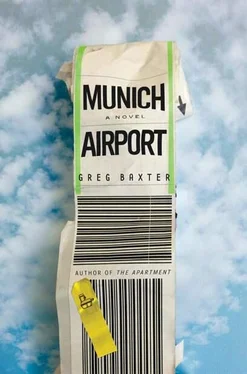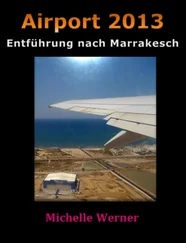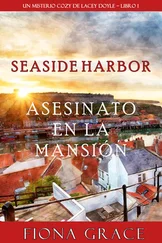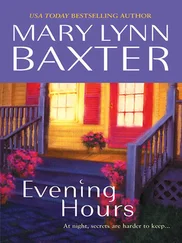The Roy Lockwood diorama was on one of the underground floors. The scene itself wasn’t extraordinary, or different from anything else — two soldiers in a foxhole. One was resting, the other manned a machine gun. The resting soldier was Roy Lockwood. In front of the scene was a lectern displaying a typed letter, with handwritten corrections, behind some glass. A white light that shined down on that letter was so dim that it did not upset the blue darkness of the scene. Beside the letter was a photograph. It was the scene the diorama had reproduced. The scene, like a lot of others in the museum, had been re-created from a photograph. That was the last room I visited, and I nearly turned around at that moment, but I read the letter instead. After I read it, I read it again. I read it many times. Then I took a photo of it with my phone, and later on that evening, before dinner, I transcribed the letter into my notebook. Roy Lockwood, on 14 November 1982, responds to a letter he has received asking about the photograph, and about his experiences in the fighting here. Please excuse my delay in answering your 3 August 1982 letter, he writes. In the army unit I served with, please be advised it was Company G 320th Infantry Division, 35th Division, 3rd Army. I was the one sitting to the left of the machine gun.
The letter is only one page long, but he explains that in that picture, his friend Jack McFarland had taken over manning the thirty-caliber gun after a German counterattack. Jack McFarland had passed away in the spring of 1982, which made Lockwood the last remaining member of his machine-gun crew, of which there had been six.
As to the towns we were near at the time, I don’t remember, he writes, as for over thirty days we were constantly out in the fierce freezing weather, without the opportunity to even be in a house or a barn and we were also occupied with the constant front-line attacks and counterattacks. As to my memories of the Battle of the Bulge, we were in fierce combat with the Germans and were fighting for our lives. The artillery shellings were unbearable, both the German and our own artillery which landed short. Mostly it was brutal and nerve-wracking going. It was labeled by the men who were there as a White Christmas and New Year’s in a White Hell.
Lockwood explains, after that, how on New Year’s Eve, men made toasts to their own death. Eat, drink, and be merry, boys, tomorrow maybe we’re dead! And many of them were! he writes. They fought in close quarters, and in the bloody hours of slugging it out, men won each other’s praise for skill and guts!
He writes, This terrible period in which foxholes were walled with ice, water froze in canteens, and medics carried blood plasma under their arms to keep it warm, was not without its beauty! Shimmering crystalline snow clung delicately on branches and bushes and communication-line wires, as if placed there by the hands of God! On the few brilliantly sunny days the sky was bluer than the oceans. Like invisible needles pulling fussy white threads through the blue skies, fighter escorts trailed vapor at an arctic height. Then came the bombers in wedge formations, glinting in the bright blue firmament like tiny crosses of mother-of-pearl. This gave us some indication the bombing of Germany would soon end the terrible war!
Thirty-eight years had passed between the night in that foxhole and the composition of Lockwood’s letter, and more than thirty years since the composition of that letter and my visit to the museum. In closing, he writes, please extend my many good wishes and regards to the wonderful people of Luxembourg who greeted us so friendly during those trying times. Sincerely yours, Roy W. Lockwood.
We stayed in the city of Luxembourg that evening. It was not far from Diekirch, and we’d sort of been chased out of Diekirch by an SUV I’d cut off. The SUV seemed to be following us, waiting for me to stop in order to have a word with me, so I just never stopped. My father didn’t know what had happened. He just kept asking, Why are you driving so erratically? In Luxembourg city, we went out for dinner in a restaurant near our hotel. I asked my father if we ought to go to Aachen the next morning, see Charlemagne, then head back to Berlin. I was starting to feel immensely run down. Although I found myself wanting to eat all the time, I’d stopped tasting my food. He thought about it. Why don’t we go to one last nice restaurant, something we’ll remember, a place with a couple of Michelin stars? he asked. Paris is probably too far, at least in terms of getting back to Berlin, I said. I was thinking of Brussels, he said. Sure, I said. Good, he said, we’ll get a five-star hotel, live like kings for a night. You know, I said, that Brussels is actually a shithole? He said, I hear it’s quite dull, but we’re in Luxembourg — what could be duller than a night in Luxembourg? We had a few glasses of wine each over dinner, and suddenly I couldn’t help myself — I read out Lockwood’s letter to my father from my notes. He listened attentively. He asked me to read it a second time. Then he got a little sad halfway through and asked me to stop. We sat in silence for a little while longer. We were in a white restaurant, with white tablecloths and waiters in white aprons and dark-burgundy cravats. It was half-full. I ate pork belly. My father ate vegetarian risotto. And when we were finished with our main courses, we each had some grappa, then we had some dessert — I got the crème brûlée and my father got a dark chocolate cake with strawberry sauce. I could barely move from overeating. My father was winded, he had to take deep breaths between bites. I said, Debussy’s La Mer isn’t realism, and that’s why it succeeds. My father had to gulp down a few breaths of air in order to ask, How do you mean? I said, I mean it clearly isn’t representational, it is clearly abstract, it’s not about the sea. What’s it about? he asked. Music, obviously, I said, and other artistic representations of the sea. Surely it’s also about the sea, he said. I said, You’re missing the point. He said, I think you’re overthinking.
We were tired, and the overabundance of food had suppressed the drunkenness I’d enjoyed through the first half of dinner. I hardly ever eat desserts, so when I do, my belly swells up, and my face goes red, and I have to burp a lot. My father’s eyes closed. The waitress came by. I ordered us both a second grappa and an espresso. Then I said, Two double espressos.
When the waitress left, my father opened his eyes and said, Do you know that Schoenberg, when he finally got to Hollywood, begged a producer to let him produce a score for a film? I didn’t know that, I said. Well, it’s true. Schoenberg turned himself into a musical fascist before he left Berlin, and when he got to Hollywood he made himself a tennis player. In the end, all those European exiles — those composers you admire so much — were all making dreck music for shitty films in Hollywood, selling out, one after the other, swimming in money and debasement and feeling famous. It was too much for Schoenberg to bear, being left behind like that, being left out of the future of music. He demanded fifty thousand dollars — which is like a million dollars today — to compose music for a movie. He demanded full control. But really he just wanted to be working in movies. They ignored him. He sent a letter begging them to reconsider. They never answered.
My father looked away, then wiped his face with his thick white cloth napkin. The waitress served our last grappas and our coffees, and my father said, We have officially had way too much to drink. I agreed.
When we went back to the hotel that night, I felt unusually sobered by the conversation. Even though we blamed it on exhaustion and drinking, I was awake and sobered. I turned on the television and ran a bath. I put on my sunglasses. I went down to the hotel reception and asked for a sharp knife. The woman behind the desk said, Big or small? Small, I said, but sharp. She gave me a serrated steak knife from the kitchen. Perfect, I said, thanks very much. I went upstairs and got in the bath. The water was searing. I had to go in slowly. First just the bottoms of my feet, then up to the ankles, then to the knees, and so on. It took ten minutes to get all the way in, and then I couldn’t breathe. Not for a while. I picked the knife up from the floor beside the tub and held it in my right hand. I had set my notebook on a little ledge by the bath, and I placed it in my mouth. I bit the spine of the book, I clenched the notebook in my teeth. Then, with my left hand, I took a hunk of flesh in the side of my gut. I squeezed the flesh and started to cut. I started the cut pretty deep, but I couldn’t keep it deep. It was more painful than I could have imagined, and I almost bit through my notebook to keep from screaming. I was thinking, If I can get a pound out, just a pound, I will be purified. Or maybe I was thinking that, if I could make a large incision, large enough to stretch back the skin wide on either side, I might, for a moment, before the pain became unbearable, witness the reality of the life of my body, and, by witnessing that reality, eliminate the mystery of who I am and how and what I perceive — because that mystery is such great pain, a pain worth enduring minor pain to eliminate. But of course it had been unbearable from the very beginning. The bath turned bright red. I got out. Bending, twisting, standing — it was all excruciating. I dried off. The wound was gushing blood. I smoked a cigarette. The room filled with foggy smoke, like smoke from a wet campfire — it was totally illogical. Then I called reception and said I needed some first aid. The woman asked me if it was an emergency, and I said, Yes, I would say it is an emergency. A few minutes later there was a knock on the door. I wasn’t dressed. I had a little towel around my waist, and it was soaked with blood. I opened the door, and the receptionist cried out something in Luxembourgish, which I assume meant, You are bleeding! I really was bleeding. It was very heavy, and I said, That’s why I need the first aid. You need a hospital, she said. There’s no need for a hospital, I said. The woman said, There will be a fine for smoking, and you must pay for the towels you have ruined, please give me the knife. I gave her the knife. She gave me the first-aid kit — with bandages and antiseptic. I apologized for the trouble — I made some weird excuse about trying to get a splinter out, and I assured her it looked far worse than it was — and she left.
Читать дальше











